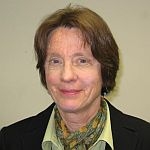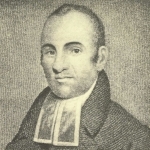 (HOST) In observation of Martin Luther King Day, commentator Cyndy Bittinger has the story of an early Vermonter – a Rutland minister who also happened to be the first African American to be ordained by any religious denomination in this country.
(HOST) In observation of Martin Luther King Day, commentator Cyndy Bittinger has the story of an early Vermonter – a Rutland minister who also happened to be the first African American to be ordained by any religious denomination in this country.
(BITTINGER) In 1963, Martin Luther King’s "I Have a Dream" speech riveted a nation when he called for us to "open the doors of opportunity to all of God’s children."
162 years before that seminal event, another African American minister was the main speaker at Rutland’s celebration of the 25th Anniversary of American Independence. He exhorted his listeners to (quote) "destroy distinctions among men that ought never to exist" since the Constitution mandates that "all men are born equally free and independent and have certain inherent unalienable rights." But the main thrust of his speech was to praise George Washington, who, though a slave holder, was willing to devote his talents to the public good and the value of a free republican government.
Vermont had banned slavery in its Constitution, but in this treatise, Reverend Lemual Haynes described the condition of American slaves. Haynes argued that slavery suppressed every principle of manhood and we should detest this "attack on the rights of men." He also explained that "Union in every society is essential to its existence" and warned that discord was dangerous. This was 60 years before the secession of Southern states and the American Civil War. Haynes also referred to the state of Vermont with its "peace, virtue and morality" as soon to "become a star of no small magnitude in the revolution" – meaning the young country.
Reverend Haynes’ speech was distributed in the United States and abroad, not because it was given by an African American, but because it was by a serious religious thinker of the early 19th century. Haynes was allied with Jonathan Edwards in defending orthodox Calvinism and opposing Universalism and for that he became well known in this country. In 1804, Middlebury College awarded him an honorary masters degree – not for his color but for his accomplishments.
He was born out of wedlock and abandoned by his Black father and his white mother. As an orphan, he was raised by a pious couple in Granville, Massachusetts who treated him as one of their own. Yet he worked for them as an indentured servant and studied at the common school. On his own he learned Bible verses. After studying Latin and Greek with tutors, he was given an exam by a group of ministers and ordained. In 1785, he became the first African American to be ordained by any religious denomination in this country.
Before accepting his post at Rutland’s Congregational Church, Haynes toured New England. He stopped at Dartmouth College and spent time with Reverend Samson Occom, the first Native American to publish sermons and a narrative of his life.
For thirty years, Haynes was a successful preacher in Rutland, where he filled the pews and built a strong, solid church. He had charisma. His sermons were popular and distributed widely. Few – if any – in his congregation were Black.
One recent scholar noted that Reverend Lemuel Haynes " was a different kind of hero: a man who overcame environmental obstacles through intelligence, perseverance, and faith" to inspire all Vermonters.